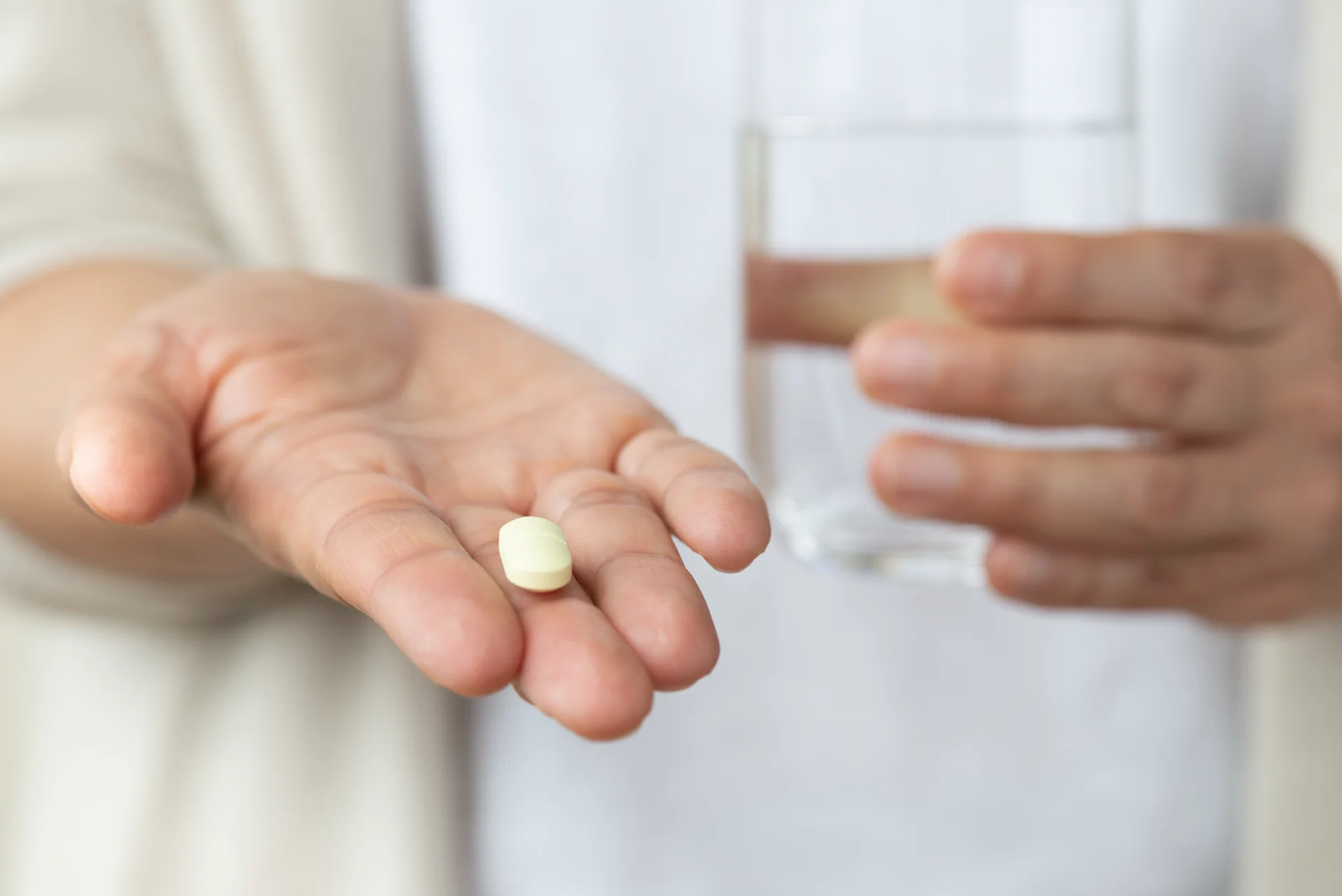Science Made Simple: The Role of DAO and Anticholinergics in the Human Body
When you’re trying to make sense of health and wellness information, it can sometimes feel like you’re reading a foreign language. You may have heard these words—diamine oxidase and anticholinergic—but what do they actually mean?
Well, think of diamine oxidase (DAO) as your body’s clean-up crew, especially for a substance called histamine. Anticholinergics, on the other hand, are a type of medication that interacts with a different substance in your body called acetylcholine.
But are they the same or do they have a similar purpose?
Anticholinergic Substances: A User-Friendly Breakdown
Medicines can often have complex names that make them sound intimidating. Anticholinergic substances are a prime example. But don’t let the long name fool you. At their core, they have a simple yet crucial role in our bodies. Let’s break it down.
What’s Their Job, Exactly?
Anticholinergic substances act as our body’s control panel. They regulate acetylcholine, a chemical in our body that controls functions and movements we don’t consciously operate. Imagine acetylcholine as a group of employees at a company, and anticholinergic substances as their manager, making sure everyone stays in line.
Thanks to this regulating power, these substances are key players in managing health issues such as:
- Difficulty with bladder control
- Lung conditions like COPD (chronic obstructive pulmonary disorder)
- Certain poisonings
- Unwanted muscle movements as seen in previous studies for conditions like Parkinson’s disease
Commonly Used Anticholinergic Drugs
To give you an idea, here are some commonly used anticholinergic substances:
| Category | Examples | Uses |
| Tricyclic Antidepressants | Nortriptyline (Pamelor), Doxepin, Amitriptyline | Treat depression, anxiety, mood disorders, chronic pain, migraines, insomnia |
| First-Generation Antihistamines | Diphenhydramine (Benadryl), Doxylamine (Unisom) | Treat allergies, motion sickness, insomnia |
| Drugs for Overactive Bladder | Oxybutynin (Ditropan), Tolterodine (Detrol), Solifenacin (VESIcare) | Treat overactive bladder and urinary incontinence |
| Antipsychotics | Clozapine (Clozaril), Quetiapine (Seroquel) | Treat schizophrenia, bipolar disorder, other psychiatric disorders |
However, as with any other medication, these substances can have side effects. Here’s a snapshot of what these might look like:
| Side Effects | Description |
| Dry Mouth | Reduced saliva production due to the drug can lead to a dry mouth |
| Constipation | The drug’s effect on the digestive system can slow it down, leading to constipation |
| Eye Problems | Certain anticholinergic drugs can lead to blurred vision and other eye problems |
| Cognitive Issues | Some patients may experience confusion, cognitive impairment, and even hallucinations |
| Physical Discomfort | Some may experience tremors, ataxia, hyperthermia, and tachycardia |
Individuals with certain conditions, like memory problems, constipation, or prostate enlargement, might be more prone to these side effects.
A Note of Caution
While these drugs are incredibly helpful, they are not to be taken lightly. They should always be used under the supervision of a doctor, particularly for those with lung disease, stomach ulcers, or heart rhythm issues.
To wrap it up, anticholinergic substances are like superheroes in the world of medication, playing a vital role in managing various health issues. However, they come with a responsibility to use them wisely, always considering potential side effects and always under the guidance of a healthcare professional.
Understanding Diamine Oxidase (DAO) and Its Crucial Role

Diamine Oxidase, also known as DAO, is an important enzyme primarily generated within three specific parts of the human body. Its main function is to break down and regulate histamine, an essential compound that can create imbalances if not properly controlled.
Where is DAO Produced?
| Site of Production | Role |
| Kidneys | Kidneys assist in removing waste from the body. Here, DAO contributes by breaking down excess histamine. |
| Thymus | The thymus is part of the immune system, where DAO aids in regulating histamine levels to maintain optimal immune responses. |
| Intestinal Mucosa | In the digestive tract, DAO helps to manage histamine levels, crucial for normal gut function and food tolerance. |
The Interplay Between DAO and Histamine
Histamine is a biogenic amine with roles in numerous physiological processes. Here are three of the key roles:
- Immune Response: Histamine helps the body’s defense mechanism react to foreign pathogens.
- Neurotransmission: As a neurotransmitter, histamine aids in sending signals to the nervous system.
- Gastric Acid Secretion: Histamine is responsible for triggering stomach acid production, necessary for proper digestion.
However, excess histamine can lead to a condition known as histamine intolerance, presenting symptoms like:
- Migraines
- Headaches
- Gastrointestinal issues
- Skin conditions
- Allergic rhinitis
DAO plays a crucial role here, breaking down the excess histamine to prevent these symptoms and maintain healthy bodily function.
PMIAA: A Direct Link to Diamine Oxidase
You’ve probably heard the saying that “nothing works in isolation,” and this couldn’t be truer in our bodies. Every process, every reaction, has a purpose and a connection to another. A fantastic illustration of this interconnectedness is the relationship between Diamine Oxidase (DAO) and something called Pros-Methylimidazoleacetic Acid, or PMIAA for short.
Pros-Methylimidazoleacetic Acid (PMIAA) is what we call a “metabolite,” a byproduct created when DAO does its job on histamine. If Histamine is like a party guest that’s overstayed its welcome, DAO is the host that kindly but firmly shows them to the door.
When histamine gets broken down by DAO, Pros-Methylimidazoleacetic Acid (PMIAA) is one of the products created.
DAO’s job doesn’t just stop at histamine. It also handles the metabolism, oxidation, and inactivation of other similar compounds, like putrescine and spermidine in animals.
During these processes, DAO turns these compounds into corresponding aldehydes, ammonia, and hydrogen peroxide. And, as mentioned, PMIAA is one of the metabolites produced when DAO works on histamine.
So, in essence, Pros-Methylimidazoleacetic Acid (PMIAA) is a tangible sign of DAO doing its job correctly, further emphasizing the vital role DAO plays in maintaining our body’s balance.
DAO Supplements
In some cases, the body’s DAO production may not be sufficient to effectively regulate histamine. In such cases, over-the-counter DAO supplements can come in handy.
While ongoing research aims to fully understand the effectiveness of these supplements, they are commonly used to help control the symptoms of histamine intolerance.
Overall, DAO is a vital element in maintaining the body’s balance. By efficiently managing histamine levels, it helps keep our physiological functions in harmony, contributing significantly to our health and well-being.
DAO, Anticholinergics, and Their Impact on Your Body
To set the record straight, diamine oxidase (DAO) is not an anticholinergic substance. The two serve different functions in the body and have distinct effects. Let’s dive deeper to understand their roles and how they relate to each other.
How Are DAO and Anticholinergics Similar and Different?
Even though DAO and anticholinergic substances aren’t the same, they do have something in common. Both can be used to help manage symptoms when there’s too much histamine in the body, but they do this in different ways.
DAO is an enzyme that breaks down histamine, while anticholinergics block the action of acetylcholine, a neurotransmitter that is involved in the release of histamine. This means that DAO is more specific in its action, while anticholinergics have a broader range of effects.
DAO is generally viewed as a safer option compared to anticholinergics. This is due to the fact that anticholinergics can cause side effects while DAO does not have these same side effects.
Conclusion
To put it simply, while both DAO and anticholinergic substances can help manage symptoms when there’s too much histamine in the body, they’re different. DAO is a natural enzyme in our bodies, while anticholinergics are a type of medication.
DAO is usually safer and causes fewer side effects than anticholinergics. Remember, if you have any health concerns, it’s always a good idea to talk to your provider. They’re the best source of advice for your personal situation.
Discover Your Path to Wellness with SeeBeyond Shop’s Premium DAO Supplements

Looking for a way to balance your histamine levels and improve your overall health? Let SeeBeyond Shop be your guide! We offer not just high-quality Diamine Oxidase (DAO) supplements, but also expert insights into how DAO plays a vital role in maintaining your body’s well-being.
Why wait to take control of your health? Visit SeeBeyond Shop now, explore our range of DAO supplements, and empower yourself with the knowledge to lead a healthier life. Our experts are here to guide you every step of the way towards your journey to wellness!
